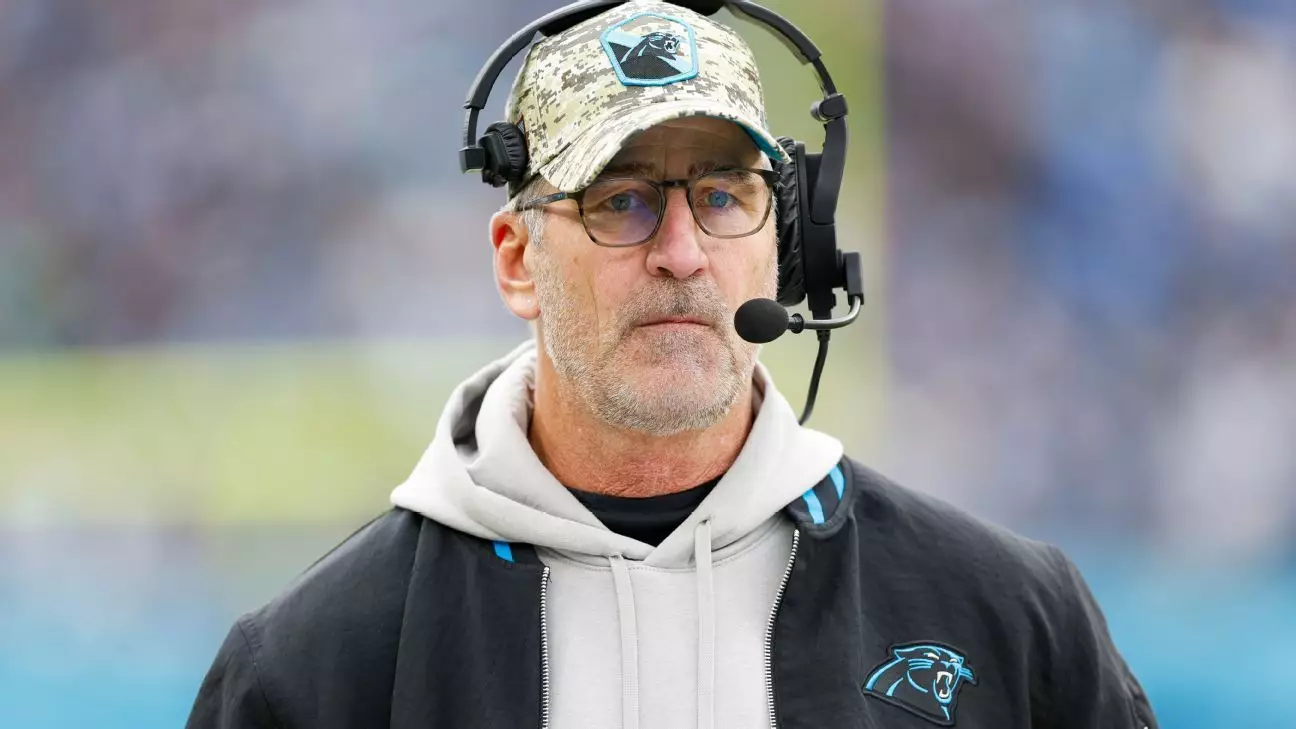In a surprising twist that has electrified the college football community, Stanford University has appointed Frank Reich as the interim football coach for the upcoming 2025 season. Amid the chaos that followed the firing of former coach Troy Taylor for egregious misconduct—specifically, allegations of bullying female staff and creating a toxic work environment—Stanford has made a gamble that could redefine its football culture. While some may see Reich, a veteran NFL coach with a somewhat checkered past, as a misfit for the role, his hiring may indeed represent a radical opportunity for renewal in a program that has seen better days.
Troy Taylor’s dismissal came as no shock to those following the scandal, reinforcing the need for ethical leadership in football. Reich’s appointment can be interpreted as a pivot towards a more responsible era for Stanford. On the surface, one could argue that this contract is a stopgap measure; a one-season arrangement implies uncertainty about the long-term vision. However, this could also signal a unique opportunity for Reich to rehabilitate not just his own image but also restore integrity to a program deeply marred by Taylor’s misdeeds.
A Son of Stanford Returns
What makes this hiring particularly intriguing is Reich’s history with Stanford, where he had a nascent but meaningful connection to the football program through Andrew Luck, the university’s football general manager and former NFL star quarterback. Their relationship could introduce fresh perspectives on mentorship and character development, crucial areas where Stanford must align with its academic virtues. Luck’s endorsement carries weight; he highlighted Reich’s qualities as a leader who embodies the values that Stanford represents.
Yet, one must question whether this connection alone can compensate for Reich’s recent failures in the NFL. His brief, tumultuous tenures have raised eyebrows. He was notably fired by the Carolina Panthers after a dismal 1-10 start in 2023, creating a narrative that could haunt his upcoming college stint. Is the university placing too much faith in a coach whose recent track record is defined by inconsistencies? The disparity between collegiate and professional coaching can be vast, and while Reich has experience guiding players of exceptional talent, can he adequately interact with and develop young student-athletes who are often still figuring out life?
The Atmosphere of Change
In the wake of scandal and disappointment, Stanford’s football program is embarking on a journey that must embrace transformation from the inside out. Reich will have the monumental task of not just crafting game strategies, but also rebuilding trust and morale among players and staff alike. As he steps into the role, the urgency will be palpable; Stanford hasn’t sniffed a bowl game since 2018 and hasn’t had a winning season since the year prior. This daunting reality begs the question: can one man—regardless of experience—alter the course of a decade-long decline?
Stanford’s decision to elevate tight ends coach Nate Byham to offensive coordinator places the responsibility not just on Reich, but on an entirely new coaching staff. Byham will be tasked with calling plays during a time when the brand of Stanford football has lost its luster. The collaborative efforts between Reich and Byham could potentially spark a renaissance for the program, but the clock is ticking. In a league that thrives on results, there’s zero tolerance for mediocrity.
Looking Ahead: The Road to Recovery
It will be essential for Reich to infuse a culture of accountability, performance, and, most importantly, ethical integrity as he leads the Cardinal into a fraught season. The mounting pressure of revitalizing a failing program looms large, especially as the university also seeks a permanent athletic director following Bernard Muir’s resignation. With the weight of historical failure looming overhead, the stakes are sky-high for all involved.
In this context, Reich’s hire could indeed become a pivotal moment for Stanford football—one that ignites a spirited push toward not just reclaiming its past glory but also building a future that thrives on respect, discipline, and excellence. The narrative is laden with challenges, but it is equally replete with potential for growth and renewal. Whether this venture will lead to success or further despair is anyone’s guess, but one thing remains certain: the 2025 season is more than just about football; it’s a chance to redefine what Stanford stands for in the collegiate sports landscape.


Leave a Reply